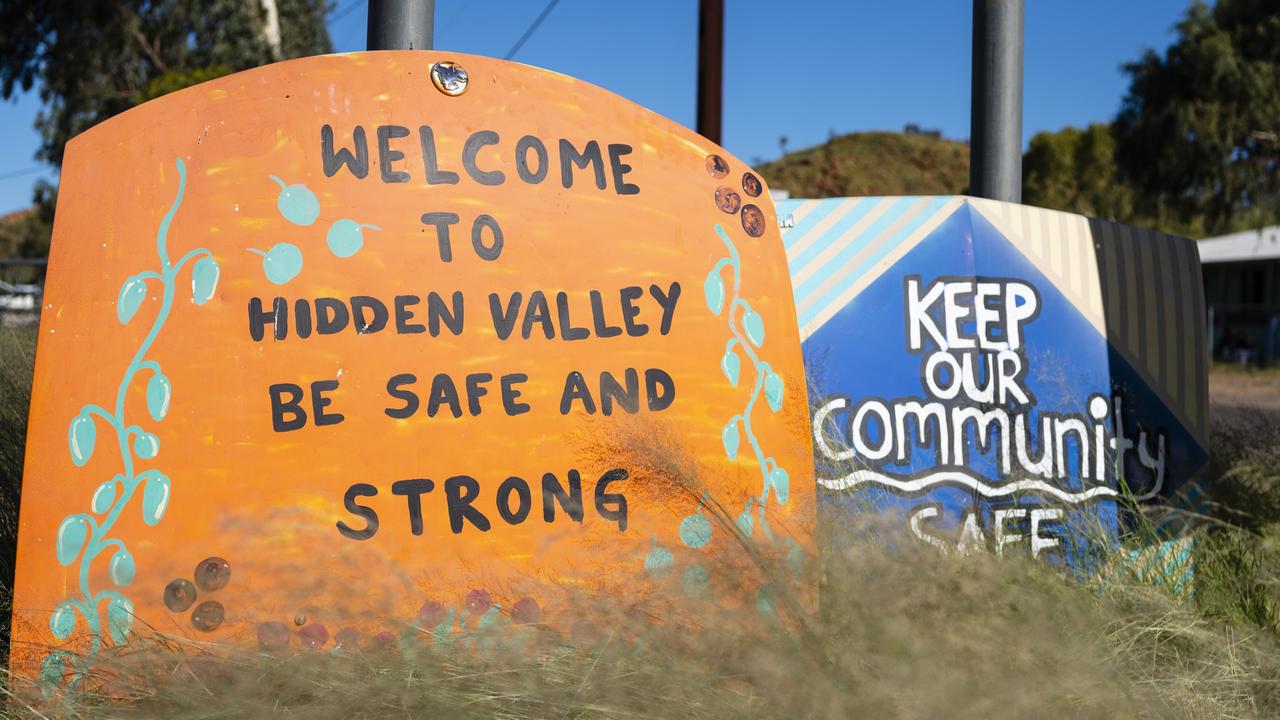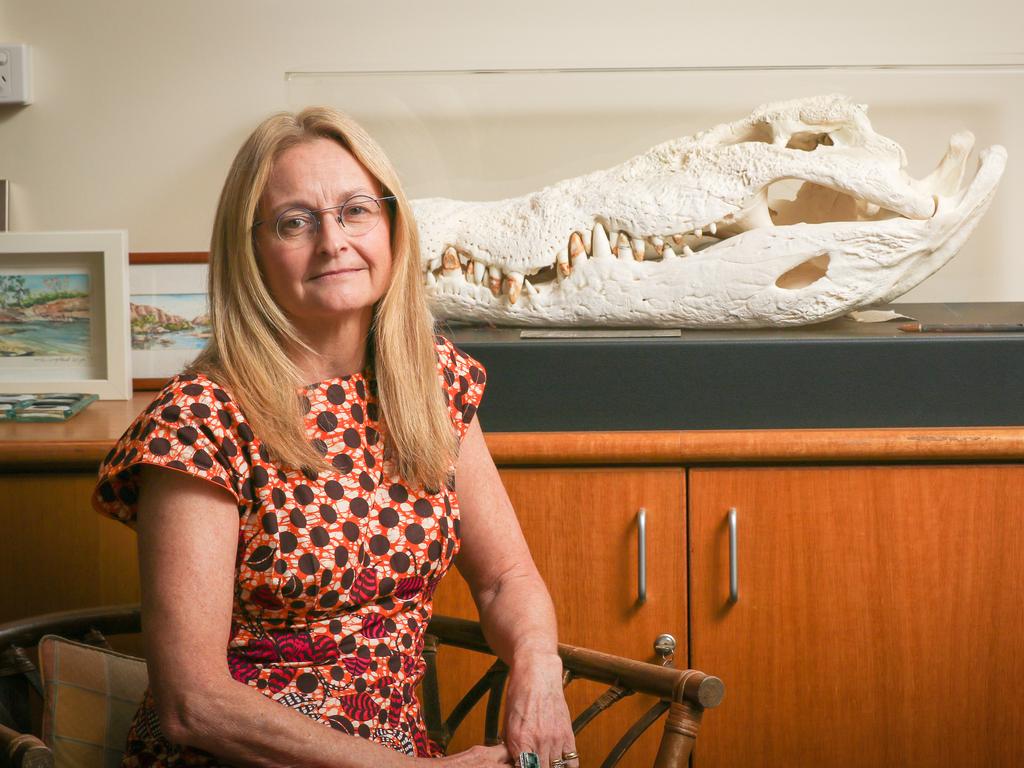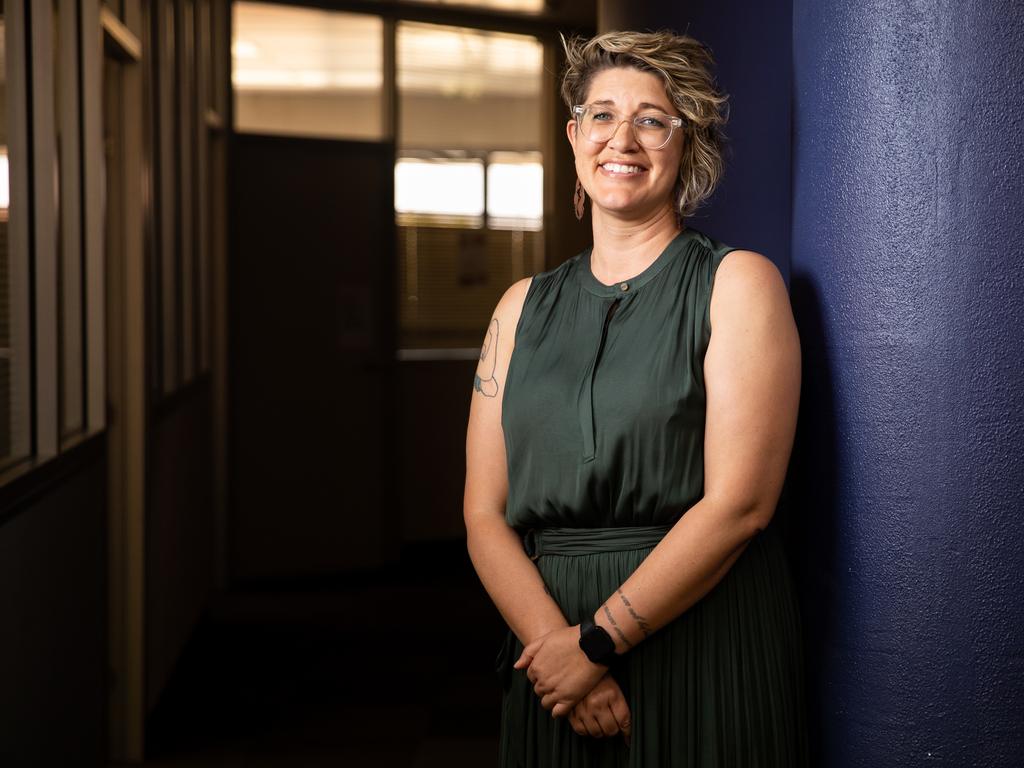Kumanjayi Haywood domestic violence coronial exposes frontline in crisis
‘You’re dead when you get back’: Major warning signs were overlooked in the weeks leading up to Kumanjayi Haywood’s brutal murder at the hands of her partner, inquest hears.

After two decades of navigating abuse from the man she had loved since she was 13 years old, Kumanjayi Haywood was an expert in her own survival.
“He was swearing and saying I’ll be waiting here for you, and when you come back I’m going to stab you again, I’m going to kill you,” her voice rings out through the Alice Springs courtroom on Thursday during day three of the inquest into her death.
The court heard how decades of cascading oversights, service gaps and failings contributed to Ms Haywood’s death, with understaffed and overstretched crisis services missing key opportunities to intervene in her final weeks despite her explicit warnings.
Ms Haywood’s voice was recorded in a conversation with Senior Constable Lenora Giles on October 28, 2021, eight days before the 34-year-old was brutally and fatally burned by her abuser in a Hidden Valley Camp home.
She is one of four Aboriginal women killed at the hands of their partners whose deaths are being examined in a landmark, six-month long coronial investigation into domestic violence in the Territory.

Since 2000, 79 women have been killed by a current or former partner in the NT – 74 of them were Aboriginal.
Ms Haywood was admitted to Alice Springs Hospital in late October, 2021, for treatment on a bloody leg wound suspected to have been caused by her abuser Kumanjayi Dixon.
Ms Giles was the police officer on duty and conducted a bedside interview.
Dixon had called from a private number, Ms Haywood told Ms Giles, threatening to stab her and saying “you’re dead, you’re dead when you get back”.
Asked about how women are given privacy during sensitive interviews in busy hospital wards, Ms Giles said they “speak very quietly”.
Ms Giles returned the next day to complete Ms Haywood’s statement, but she refused to sign it, telling the officer Dixon needed to go to sorry business in Papunya and she did not want him locked up for it.
“She shut down on me,” Ms Giles said.
“It’s very hard, and it’s unfortunate that sort of situation arises quite a lot … there’s pressure on (the victim-survivors) that ‘the family will be angry he’s going back to jail and take it out on me’.
“A five-year-old will be punching their mum who’s lying in a hospital bed, because their dad was sent to jail.”
There was not enough evidence for charges to be laid against Dixon without the statement, and police did not refer Ms Haywood to a crisis centre – something Ms Giles said “probably should have” happened.
Ms Haywood did present to an Alice Springs women’s shelter a few days after leaving hospital – however the right questions were not asked, the death threats disclosed to the police were not shared, and Ms Haywood was not identified as a high-risk client.

Women’s Safety Services of Central Australia shelter chief executive Larissa Ellis told Coroner Elisabeth Armitage if Ms Haywood had been assessed she likely would have been in the highest risk category.
“Women often have to repeat and repeat (their stories) to every service they present at … even if you ask the questions they may not want to tell you,” Ms Ellis said, guessing Ms Haywood would have had to share details of her most recent abuse about six different times.
“But when she came to us, the questions weren’t asked.”
On November 5, 2021, Dixon began punching Ms Haywood, beating her with a piece of wood, and striking her repeatedly with a chair.
She ran into a toilet and locked herself inside, refusing to open the door.
Dixon poured 20L of petrol under the toilet door before sparking a lighter, causing a massive explosion.
Ms Haywood received burns to 90 per cent of her body and died in hospital two days later.
Dixon suffered burns to 70 per cent of his body and died on November 13, 2021.
The inquest continues on Friday.





